Graduated with a major in Vietnamese from the School of Oriental Languages of Lomonosov Moscow State University (MGU) (now the Academy of Asian and African Countries, Moscow State University MGU), journalist Aleksey Sunnerberg devoted his whole life to the Vietnamese Service of the Voice of Moscow, later the Voice of Russia, today's Sputnik.
In the late 1960s, due to the political situation, all Vietnamese teachers teaching Vietnamese in Moscow had to return home. Student Aleksey Sunnerberg sought out Vietnamese students studying in Moscow to improve his Vietnamese.
It was through them that he first learned about the Vietnam War when he witnessed rallies protesting the war, protesting the US invasion, protesting the US atrocities in the South, then protesting the US bombings in the North, and at the same time, pro-Vietnam movements took place widely in Moscow.
Journalist Aleksey Sunnerberg recounted that when the war in Vietnam was at its most intense, the Soviet Union had a nationwide movement to support Vietnam. The core was the Soviet-Vietnamese Friendship Association, the largest friendship association in the Soviet Union, chaired by cosmonaut and Hero of the Soviet Union Germen Titov. The association had thousands of members and branches in all provinces and republics in the Soviet Union.
The Association's members include many activists and famous artists, so it has been able to mobilize both material and diplomatic assistance for Vietnam.
At that time, most of the visits and overseas business trips of delegations from the two regions of Vietnam passed through Moscow, where they received enthusiastic support as if they were "family."
While still in his fourth year, Aleksey Sunnerberg also began interpreting for Vietnamese delegations at conferences and meetings in Moscow, through which the young student learned more about the struggle for independence and freedom of the Vietnamese people.
One of his Vietnamese student friends, translator Tran Phu Thuyet, even gave Sunnerberg a Vietnamese name - Ho Van Dan. A name that every Vietnamese person would immediately associate with the Van Kieu people in Vietnam who chose the surname Ho to show their respect for Uncle Ho.
A. Sunnerberg smiled modestly: "I dare not compare myself with President Ho, but thank you Thuyet for thinking of a very good name for me."
In his house, he has a Vietnamese conical hat. His (deceased) wife skillfully made the hat into a beautiful lampshade. The conical hat was a gift from his friend Tran Phu Thuyet, traveling tens of thousands of kilometers by train from Vietnam through China and Mongolia to reach him in Moscow. Mr. Aleksey Sunnerberg shared: “They are my friends, also my teachers, they make me love Vietnam and the Vietnamese language more.”
After graduating from university and looking for a job, Aleksey Sunnerberg accidentally learned about the job of writing articles in Vietnamese for some media agencies.
So he began his journey of dedication at the Vietnamese Service of Radio Moscow, later the Voice of Russia, the predecessor of today's Sputnik.
The head of the department at that time was journalist Leonid Krichevsky, who had been living in Vietnam for a total of 20 years but did not know Vietnamese, only French. Those 20 years included the period of escalating war in the North in 1967-1968.
Mr. Aleksey Sunnerberg recalled that Mr. Krichevsky transmitted news to the station by phone, which he dictated to the station's editor to record. During those transmissions, the journalist's voice was often mixed with the sound of bombs and explosions, and was interrupted many times. It took many international calls to complete one transmission.
The Vietnam War came very close to Aleksey Sunnerberg through the audio news, through the sounds of bomb explosions mixed in. He said emotionally, the Vietnamese people lived through the war like that, truly heroic.
Vietnamese conical hat in Aleksey Sunnerberg's office. (Photo: Tam Hang/VNA)
On April 30, 1975, he went to work as usual at the Radio Station. Then he could not believe his ears when he heard Mr. Krichevsky announce that the Liberation Army had entered Saigon and surrounded the presidential palace of the Republic of Vietnam. "Does that mean Vietnam has won, does that mean the 30 years of war have ended?"
The unexpected minutes passed and anxiety flooded in: The information was not official, the reporter was not present in Saigon but had only heard the news from Hanoi . The young journalist Sunnerberg faced a difficult choice: to release the news or wait for official news? On one side was the race to report the news as soon as possible, on the other side was the fact that the information's verification was not yet guaranteed.
Journalist Aleksey Sunnerberg recalled: “I thought about it and decided to take a risk. I chose a short news segment, gave it to the interpreter, and then passed it on to the announcer. And in the news immediately after that we broadcast the news that the Liberation Army had entered Saigon. Radio Moscow became the first foreign station to broadcast the news of the Victory on April 30, 1975, in Vietnamese.”
The official information was sent to the Soviet Ambassador in Hanoi, Boris Chaplin, early in the morning of May 1, 1975. Mr. Chaplin was invited to meet Prime Minister Pham Van Dong immediately. According to Mr. Chaplin's memoirs, the Prime Minister came to welcome the Ambassador, hugged him and said: "Congratulations, Ambassador, we have liberated Saigon!"
50 years have passed, journalist Aleksey Sunnerberg still feels lucky that he made the right choice: "I was right to choose to believe in the heroism, courage, determination and patriotism of the Vietnamese people."
Afterwards, all of Moscow, and probably the entire Soviet Union, celebrated the victory of Vietnam. It was a real festival, because every Soviet citizen had participated in helping Vietnam. Many communist Saturdays were organized to raise money to support Vietnam. Every factory worker contributed a part of his monthly salary to Vietnam.
According to the Russian Ministry of Defense, more than 6,000 high-ranking officers were sent to Vietnam as military experts. Journalist Aleksey Sunnerberg met many of them upon their return, hearing about their time serving in Vietnam, about the heroism and courage of the soldiers of the Vietnam People's Army.
He suddenly had the idea of an “encyclopedia” page about the cooperation between the two countries, from the Soviet era and continuing to the Russian Federation today. That is how Sputnik’s “Golden History Pages” page was born.
Over the past three years, he has written 109 research articles and documents on various events in the relationship between the two countries. He said that for a history lover like him, there are not many difficulties in the work.
Because every person and every event that has ever happened leaves traces somewhere, all it takes is enough research and analysis skills from old documents, and most importantly, enough subtle emotions of the journalist to build a new and attractive article about the marks that have been weighed down by time.
Aleksey Sunnerberg (right) translates for a Vietnamese delegate holding a piece of artillery shell in his hand talking about the crimes of war. (Photo: VNA)
The VNA reporter's meeting with him took place when he had just completed the 109th article about Thang Long Bridge, the second bridge across the Red River in Hanoi thanks to the help of the Soviet Union.
He is also working on an article scheduled to be published on April 30 about Soviet experts who helped the Vietnamese Army in the resistance war for freedom, independence and national unification; an article for May 9 about Soviet soldiers who participated in two wars: against fascism and against invaders in Vietnam.
Journalist Aleksey Sunnerberg also had enough material for an article on President Ho's birthday, which were memories from meetings that did not take place in the office or the Presidential Palace, and therefore remained little known.
Coming to Vietnam by chance, after more than 50 years of working, journalist Aleksey Sunnerberg had many more coincidences that he called “fate.” His son, Maxim Sunnerberg, now Associate Professor, Doctor of History, teaching Vietnamese at the Asian and African Institute of MGU, was born right when he had an appointment to interview comrade Nguyen Van Linh, who later became the General Secretary of the Communist Party. His little daughter, born on May 19, can now count to 10 in Vietnamese.
Those interesting coincidences will continue to be discovered by journalist Sunnerberg and used as material for his next articles. The “golden pages of history” are waiting to be added to by research in the precious archives he has accumulated throughout his life and career.
He will turn events and figures into interesting articles, imbued with knowledge, subtle feelings and - more than once - trust, which has placed in his hands the unique newsletter of April 30, 1075./.
(Vietnam News Agency/Vietnam+)
Source: https://www.vietnamplus.vn/nha-bao-nga-va-ban-tin-chien-thang-day-quyet-doan-ngay-3041975-post1034284.vnp


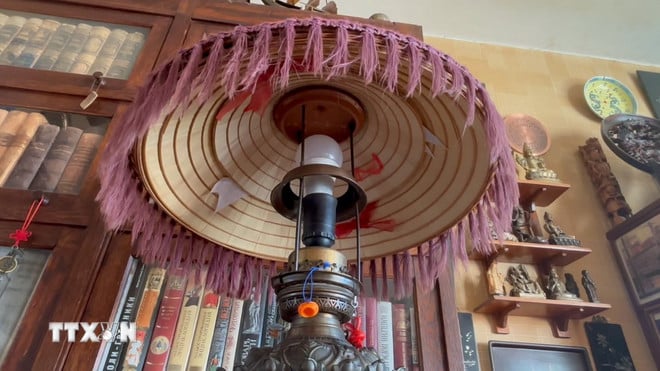
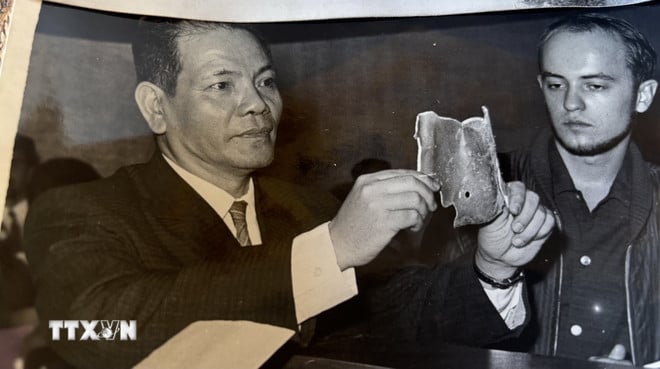
![[Photo] Crane falls on container truck and car at traffic construction site](https://vphoto.vietnam.vn/thumb/1200x675/vietnam/resource/IMAGE/2025/5/31/a8d3ae08da324cfe8ee406174c0eacc4)







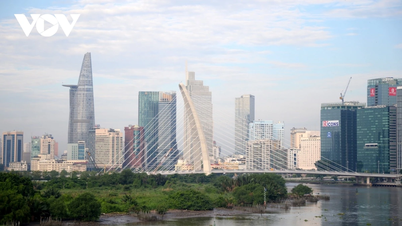



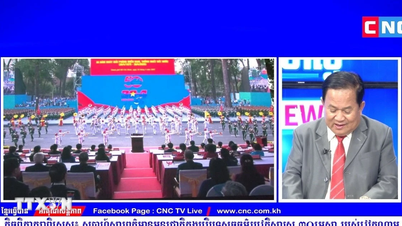
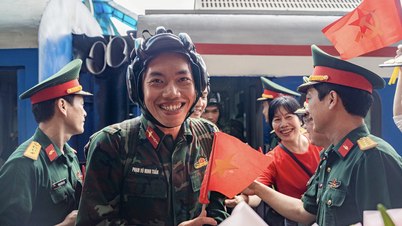

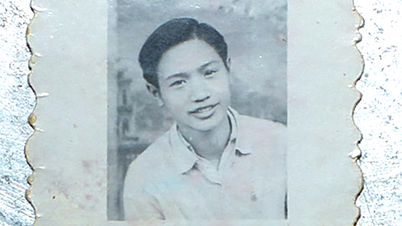


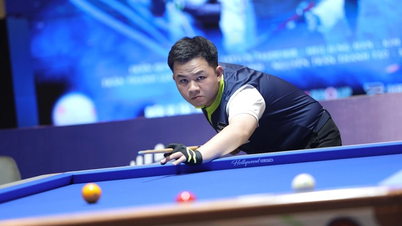
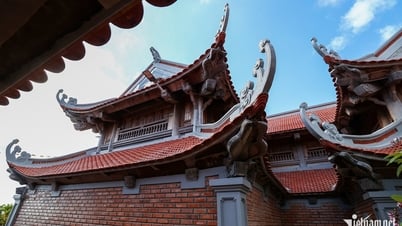


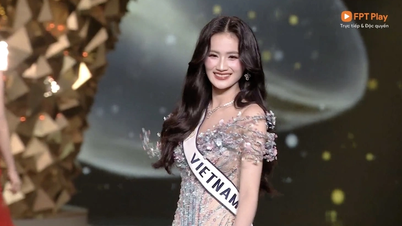
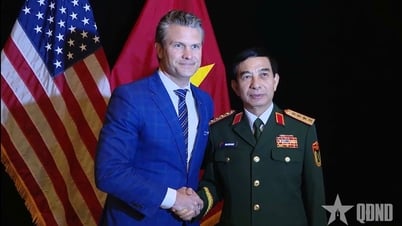





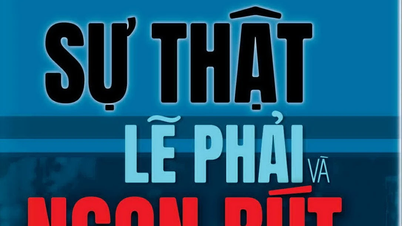



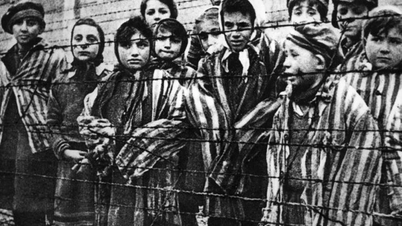
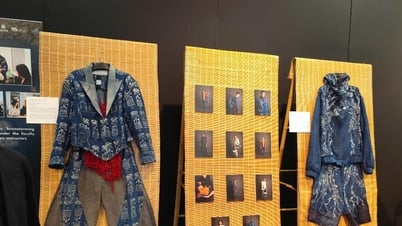

















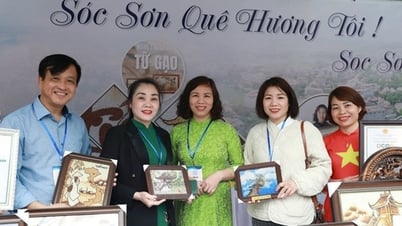







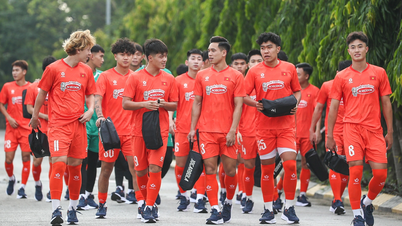





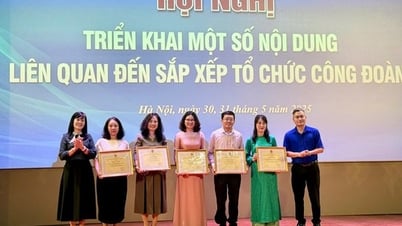
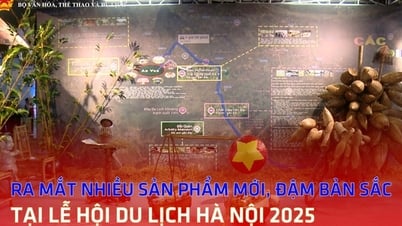





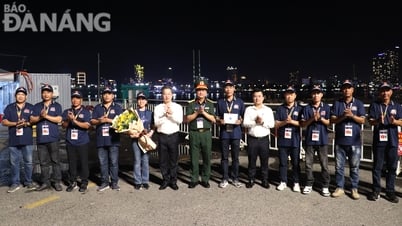

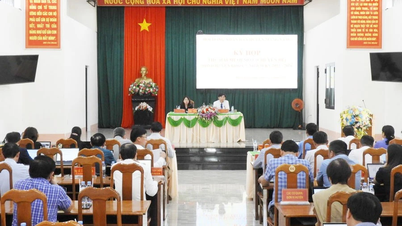

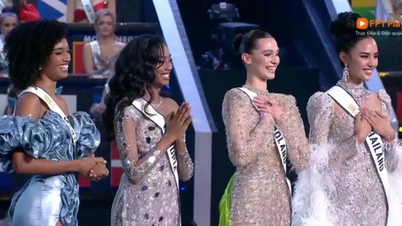















Comment (0)